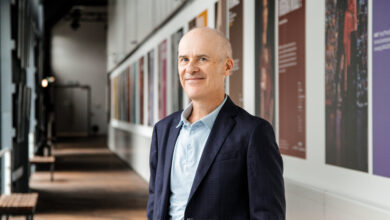Breaking the silence in men’s health

Contrary to what most men believe, their bodies aren’t bulletproof.
As men age, the body does indeed change. The most common issues are some of the more confronting – prostate enlargement, weight gain, rising blood pressure, and heart problems are likely to occur. Serious conditions such as diabetes, bowel cancer, liver problems, and urinary issues are also more common than most men realise.
The relaxed and dismissive attitude that so many men cultivate towards their health is generally reflected by a lack of attention towards what they eat and drink, along with an inadequate exercise routine.
Men see their doctors less frequently than women, disregarding the little warning signs that something is wrong. As this mindset permeates for men, there comes an underlying assumption that their bodies will continue to function perfectly, a belief that can lead to denial. The truth is, early detection and prevention are key.
A regular visit to the family doctor every couple of years from age 40, and annually after 50, can catch important signs that might need further investigation. Simple lifestyle changes – more exercise, eating less, drinking less alcohol, and absolutely no smoking – can have a profound impact.
Health check-ups offer an opportunity to discuss symptoms with a doctor and undergo screenings for conditions that might otherwise go unnoticed. For instance, skin checks are crucial in Australia, where skin cancer rates are the highest in the world.
Blood pressure is another concern, with an estimated 20 per cent of men who would benefit from medication going untreated.
Regular prostate checks, including a PSA blood test every couple of years, can provide early diagnosis and peace of mind. Even something as seemingly minor as getting up in the middle of the night to use the bathroom could indicate an enlarged prostate – a problem that can often be managed with early intervention.
Mental health is another critical area where men often struggle. The transition to retirement, particularly without a clear plan for staying engaged, can lead to feelings of isolation and loneliness. This sense of disconnection is a significant risk factor for chronic diseases like heart disease, diabetes, and dementia, and it can even increase the risk of premature death.
It's alarming that in a society as advanced as Australia, loneliness ranks as such an important health issue. The benefits of having a few good mates – both mentally and physically – are enormous.
Community support is vital in helping men navigate the aging process. Encouraging men to take that first step towards joining a club, volunteering, or simply engaging in social activities can make a world of difference. We need to start promoting these social skills early on, making it easier for men to become part of a community as they age.
Of course, healthcare providers play a crucial role in supporting men as they age. But the first step must be taken by the men themselves. The benefits of regular health interactions are undeniable, and even small adjustments can lead to a healthier, more fulfilling life.
However, it's not enough to assume that medical advancements alone will solve health issues. While the progress in medicine is impressive, a proactive approach to health by simply visiting the family doctor has tremendous benefits in preventing health problems.
The future of aged care for men holds promise, particularly with advancements in managing conditions like prostate issues. Robotic surgery, for example, has dramatically improved outcomes for men undergoing prostate removal, reducing complications with bladder and sexual function.
As the population ages, issues with the prostate will become more prevalent, particularly in nursing homes where an enlarged prostate can lead to urinary problems, infections, and incontinence. Portable ultrasounds could save time and money in aged care to check on how efficiently men empty their bladder to prevent these issues.
Ultimately, the key to better health for aging men lies in prevention, early intervention, and comfortable, straightforward interactions with healthcare providers.
A simple "toolbox talk" on worksites, addressing issues like blood pressure, alcohol consumption, exercise, skin, urinary problems, and sexual health, could be the spark that encourages more men to take their health seriously.
It's about making health discussions a normal, approachable part of life – because fixing problems years down the track is unsustainable and costly. Prevention is facilitated by early intervention and comfortable interactions with a doctor.
September is Prostate Cancer Awareness Month - to learn more, donate or find support visit: www.australianprostatecancer.org.au
Dr Adrian Sheen is a family doctor who has practised in Western Sydney since 1981.
He is also a Lecturer in General Practice at the University of Sydney.
Email: [email protected]






